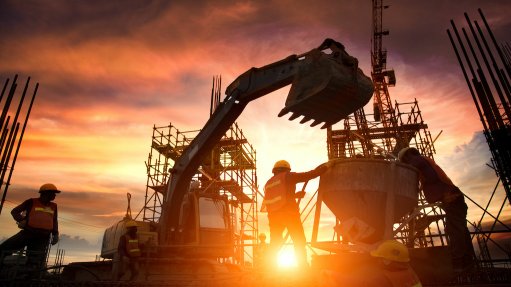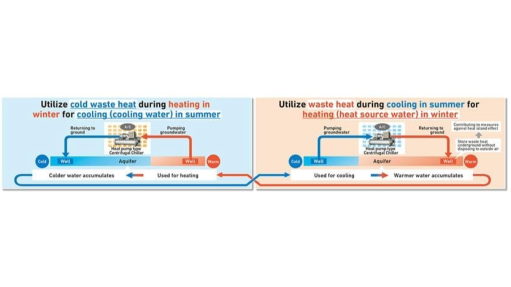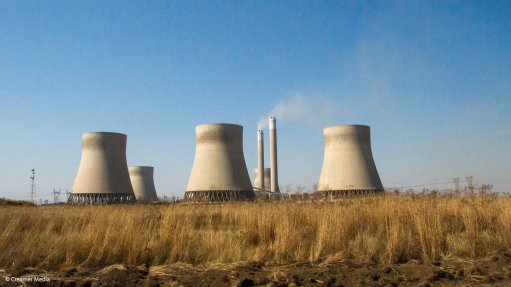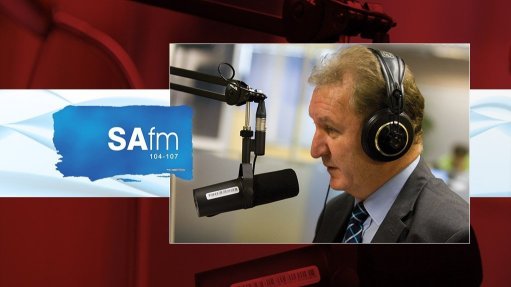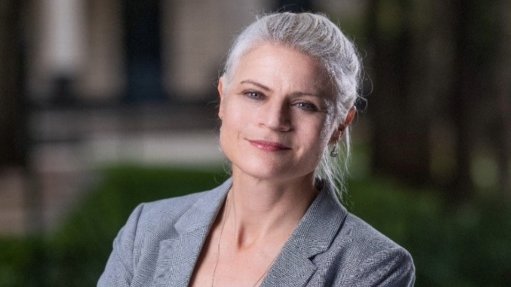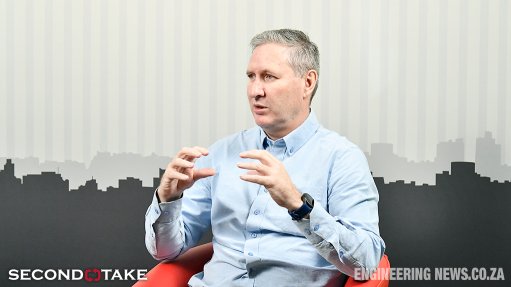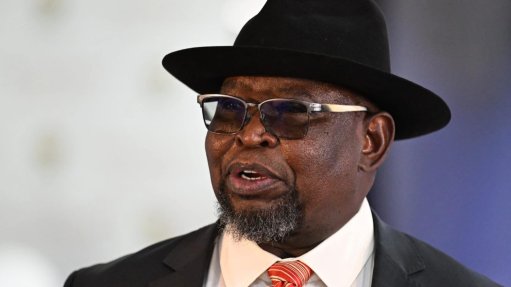Panellists have mixed views on sustainability of renewable-energy financing
Independent power producer (IPP) developers are currently generating lower returns on renewable-energy projects at about 11%, making it challenging for banks and institutions to provide finance, said Thebe Investment Corporation power and infrastructure GM Johann Bester.
He introduced this problem statement to a panel of experts during the Coal & Energy Transition Industry Day on July 23, adding that some banks are not participating in Bid Window 7 of the Renewable Energy Independent Power Producer Procurement Programme because the returns are simply too low.
“Companies are bidding themselves down to the bottom line,” Bester stated. He explained that the levelised cost of energy, or cost of energy to the industry, is how the country will remain competitive, but even those margins are being squeezed, with developers not making as reasonable returns on projects as they had in the past.
Industrial Development Corporation (IDC) energy business development manager Nondu Ngidi agreed, confirming that renewable energy project returns had dropped significantly and that some lenders were finding it difficult to continue funding some of these projects.
She said there was a need to partially subsidise projects to make them more bankable, or for developers to better negotiate with engineering, procurement and construction companies in contracts.
“There is a need to look at the whole programme and see whether the lower prices best serve the market. Indeed, the market prefers the lowest tariff, but what had to be sacrificed to get that project selected as a preferred bidder?”
Presidential Climate Commission (PCC) climate finance head Dipak Patel weighed in on the matter by saying that there needed to be a rebasing on the part of project developers and sponsors. He proposed that perhaps the response to the significant derisking in prior bid windows – on the back of 100% government guarantees – had been too intense.
Patel explained that when an auction was held and there was competition among developers and sponsors to get to the lowest possible price point and then look for financing, it introduced a market structure problem in project development.
“We cannot blame the banks, which have to achieve some level of capital return on their banking books, nor look to government to return to 100% guarantees. We need to find the structure to price correctly, which is a market phenomenon. One needs to start rebasing what a sustainable and efficient pricing commitment is.”
In response, Trilemma Impact Investments MD Hulisani Neswiswi pointed out that new businesses in South Africa could not compete against dollar pricing, which was what happened with market forces.
“We will not get it right without intervention and strong leadership from government structures. The industry needs strategic leadership to ensure this accelerated transformation includes local players, lest unpredictable downstream issues emerge.”
Patel pointed out that of the R167-bllion of financing garnered for renewable energy in 2021, only 7% flowed from international sources and the rest from local capital markets; however, 88% of the local financing was in the form of debt stock.
“PCC believes there is real depth and breadth in South African capital and equity, as well as shorter-term debt markets, to support the energy sector’s necessary transition pathways,” he said.
Meanwhile, commenting on the IDC’s considerations for financing applications, Ngidi said the company focused on local participation, not just in local shareholding but operational involvement, including asset management.
She added that the entity also preferred to finance companies that had a skills transfer initiative in place during construction where international companies trained local people.
Ngidi said these criteria, including local procurement of materials as far as possible, contributed to the transformation of the energy sector.
Neswiswi noted, however, that the industry was not doing enough to capacitate local participation in renewable-energy projects.
“Financing institutions have good products available, but the terms are not entrepreneurial enough. In future, once many of the long-term energy supply contracts end, we may find that our energy industry is owned by foreign governments and international companies.”
STANCE ON COAL
Patel highlighted that the majority of commercial and development banks had committed to stop financing new coal projects. He explained that, if there was to be new coal investment in South Africa, it would have to come directly off the balance sheet of the project developer or corporates that want to develop new mines or power stations.
“If corporates in the new coal sector want to take a risk-based view based on the market holding up long enough for them to generate returns, no one can stop them, but the writing is on the wall. I urge those who are fully invested in the coal value chain to start looking at pivoting strategies,” he stated.
The PCC’s modelling expects a vast decline in coal markets by 2035, already, based on empirical data and projections. With the Climate Change Bill having been signed into an Act as of July 23, the PCC now has licence to be independent in its thoughts, analysis and advice, Patel added.
On the prospect of clean coal, he said he did not believe in the concept and that there was only the offsetting of emissions. Besides, he added, retrofitting units such as desulphurisation units was expensive and potentially not commercially scalable at this stage.
“While I do appreciate that the coal mining and coal-fired power generation sector want to maximise the life of their assets, there will come a point where it is just economically and financially unfeasible. The transition away from fossil fuels is inevitable and necessary.”
Comments
Press Office
Announcements
What's On
Subscribe to improve your user experience...
Option 1 (equivalent of R125 a month):
Receive a weekly copy of Creamer Media's Engineering News & Mining Weekly magazine
(print copy for those in South Africa and e-magazine for those outside of South Africa)
Receive daily email newsletters
Access to full search results
Access archive of magazine back copies
Access to Projects in Progress
Access to ONE Research Report of your choice in PDF format
Option 2 (equivalent of R375 a month):
All benefits from Option 1
PLUS
Access to Creamer Media's Research Channel Africa for ALL Research Reports, in PDF format, on various industrial and mining sectors
including Electricity; Water; Energy Transition; Hydrogen; Roads, Rail and Ports; Coal; Gold; Platinum; Battery Metals; etc.
Already a subscriber?
Forgotten your password?
Receive weekly copy of Creamer Media's Engineering News & Mining Weekly magazine (print copy for those in South Africa and e-magazine for those outside of South Africa)
➕
Recieve daily email newsletters
➕
Access to full search results
➕
Access archive of magazine back copies
➕
Access to Projects in Progress
➕
Access to ONE Research Report of your choice in PDF format
RESEARCH CHANNEL AFRICA
R4500 (equivalent of R375 a month)
SUBSCRIBEAll benefits from Option 1
➕
Access to Creamer Media's Research Channel Africa for ALL Research Reports on various industrial and mining sectors, in PDF format, including on:
Electricity
➕
Water
➕
Energy Transition
➕
Hydrogen
➕
Roads, Rail and Ports
➕
Coal
➕
Gold
➕
Platinum
➕
Battery Metals
➕
etc.
Receive all benefits from Option 1 or Option 2 delivered to numerous people at your company
➕
Multiple User names and Passwords for simultaneous log-ins
➕
Intranet integration access to all in your organisation









